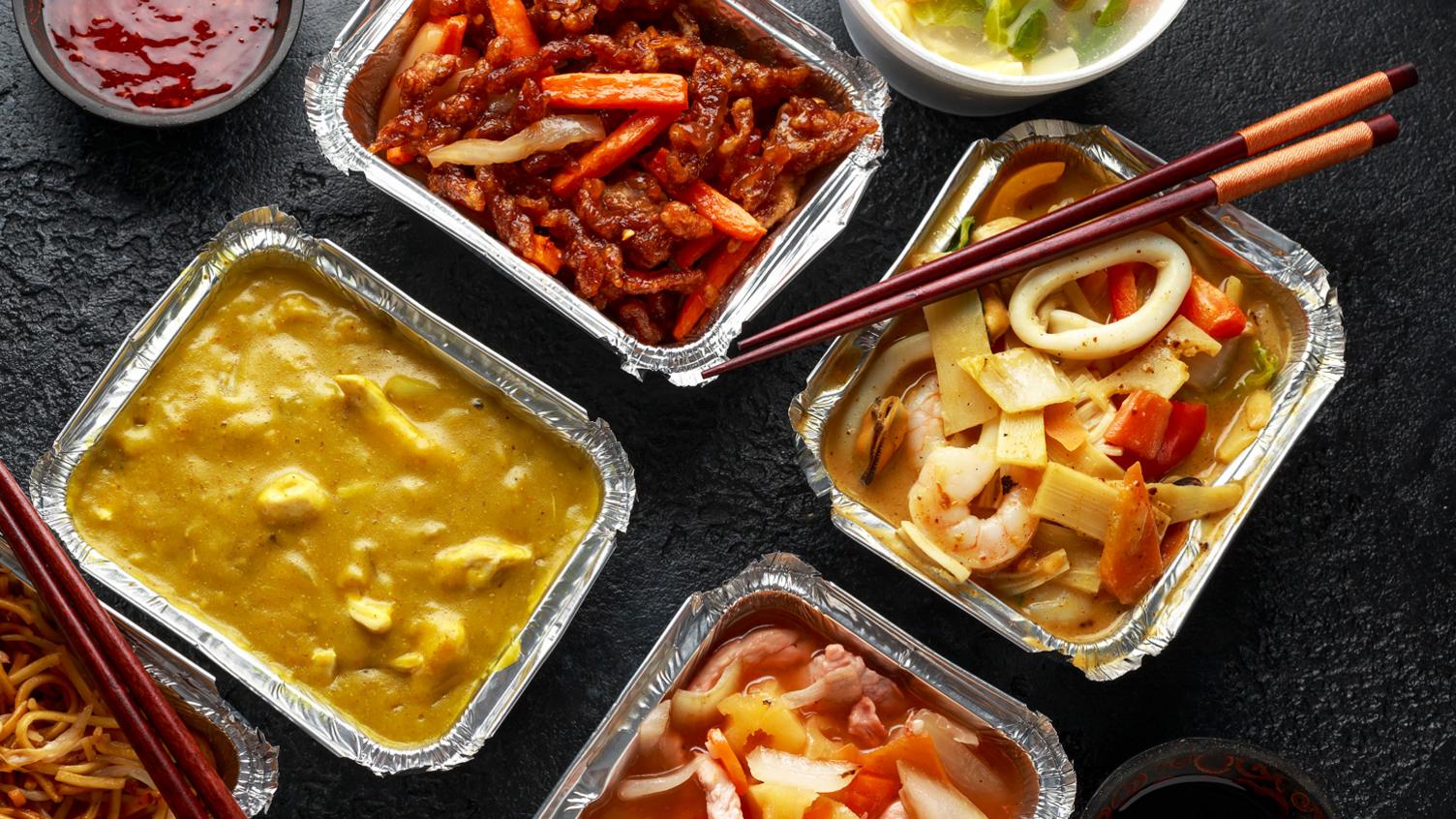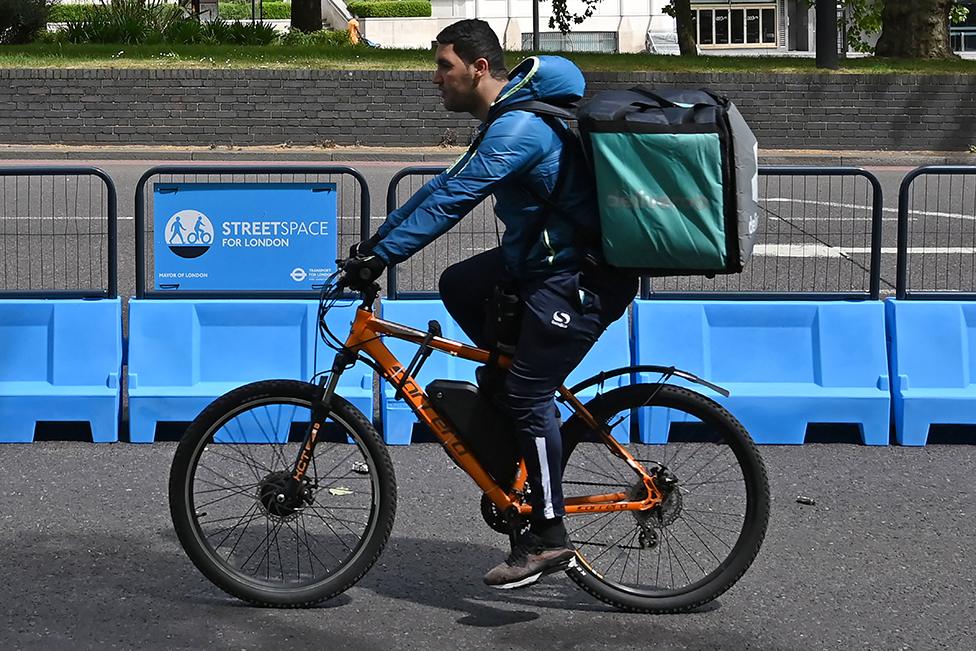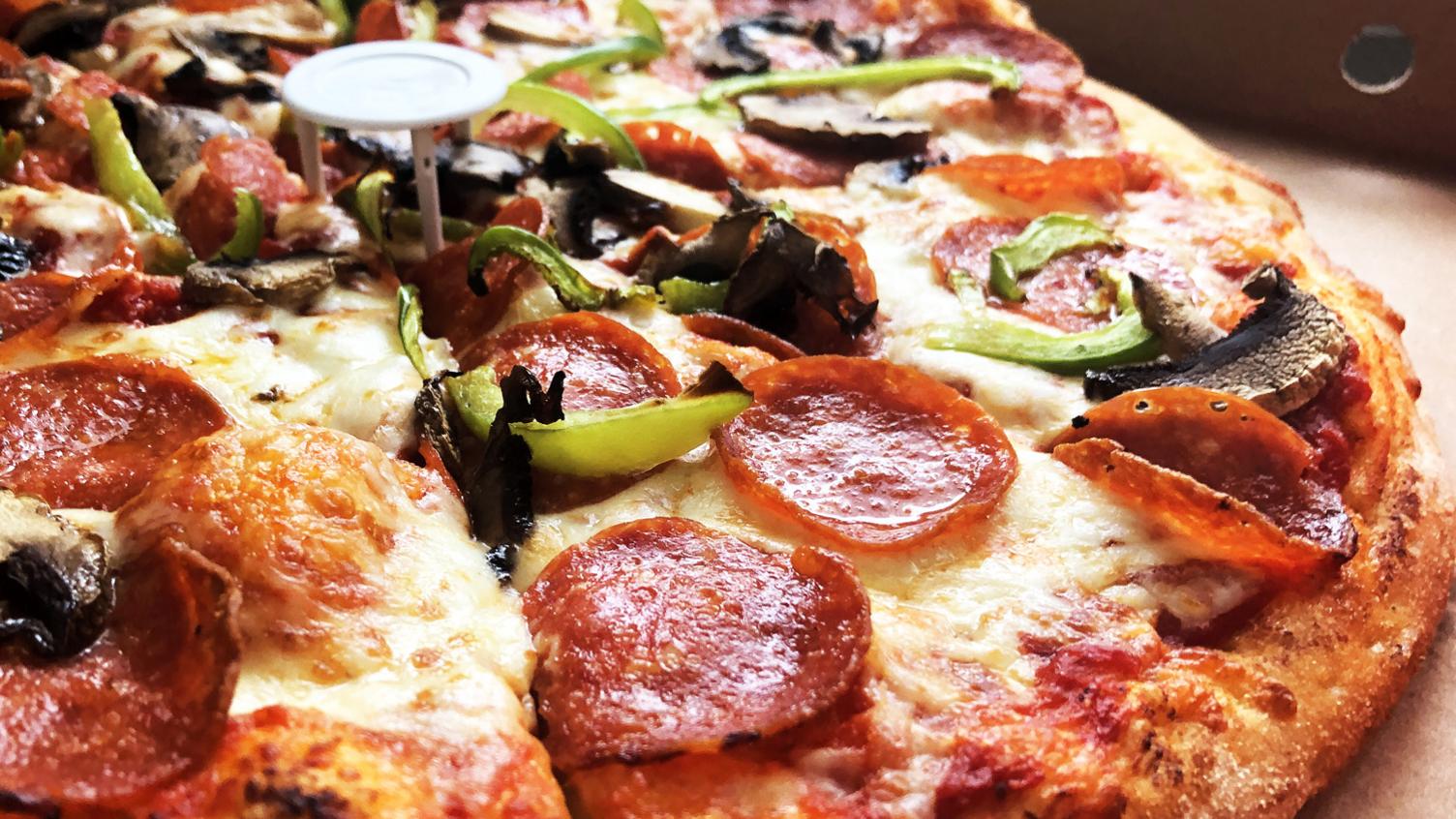Coronavirus: How safe are takeaways and supermarket deliveries?
- Published
- comments

With pubs, restaurants and cafes nearly all closed because of lockdowns across the UK, there's been a growth in takeaway and delivery of food and drink.
But what are the Covid-19 risks?
Can Covid be spread by food or its packaging?
Covid-19 is a respiratory illness - it's mainly spread by droplets of fluid that come out of an infected person's nose and mouth, which can then be breathed in by people nearby. This is thought to be the main way people catch the virus.
There is little direct evidence of people catching the virus from droplets that have ended up on objects (such as food or food packaging) - although it's difficult to gather this evidence so we can't rule it out as a route of transmission.
Reputable chains and good restaurant kitchens are most likely to be geared towards professional, hygienic food preparation, meaning there would be minimal risk from a freshly cooked takeaway meal.
Deliveroo, external and Just Eat, external have issued guidance on how their riders can stay safe and make food deliveries without touching restaurant packaging.
Any risk from touching infected objects or surfaces can be pretty much eliminated by washing your hands and not touching your face.

Should I eat with my hands?
If you get a takeaway delivery, the risk of packaging contamination can be minimised.
"Empty the contents [into a clean dish], dispose of the packaging into a refuse bag and wash your hands thoroughly before you eat," advises Prof Sally Bloomfield, of the London School of Hygiene and Tropical Medicine.
"Take food out of a container with a spoon and eat it with a knife and fork - not your fingers."
It might be better in the current circumstances to order hot, freshly cooked food, rather than cold or raw items. The Food Standards Agency does stress the risk from food is low, external and "there is no reason to avoid having ready-to-eat food delivered if it has been prepared and handled properly".
For the most cautious and vulnerable though, careful preparation and cooking may be reassuring.
"With a pizza for example, if you wanted to be really safe, you could even pop it into the microwave for a couple of minutes," Prof Bloomfield adds.

How safe are supermarket deliveries?
Delivery slots permitting, a home food drop is less risky than a trip to a supermarket as you will avoid other shoppers.
Any risk would be the possible contamination of food or packaging - handled by other people - or from the delivery driver.
You could leave a note on your door asking drivers to ring the bell and step back, but Prof Bloomfield says there's no such thing as "zero risk".
"For contained or packaged goods, either store them for 72 hours before using them - or spray and wipe plastic or glass containers with bleach [carefully diluted as directed on the bottle].
"For unwrapped fresh goods, which could have been handled by anyone - wash thoroughly under running water and leave to dry," she adds.

HOW A VIRUS SPREADS: An explanation
THE R NUMBER: What it means and why it matters
LOOK-UP TOOL: How many cases in your area?
RECOVERY: How long does it take to get better?
HOW FAST IS THE VIRUS GROWING? The UK spread compared to other countries

Prof Alison Sinclair, a virology expert from the University of Sussex, adds: "There should be no more risk from using online deliveries than using a friend or volunteer to collect groceries for you."
Some experts also advise using plastic bags only once during this pandemic.
But if I do go to the supermarket?
Coronavirus spreads when an infected person coughs small droplets - packed with the virus - into the air. These can cause an infection if they are breathed in, or potentially if you touch a surface they have landed on.
So going shopping and mixing with other people does carry a risk. Wearing a face covering and social distancing - keeping at least 2m (about 6ft) from others - are both important ways to reduce that risk.
Supermarkets can provide an "ideal setting" for virus transfer, says Prof Bloomfield. "Many people are touching and replacing items, checkout belts, cash cards, car park ticket machine buttons, ATM payment buttons, paper receipts etc... Not to mention being in the proximity of several other people."
There are ways to offset these risks:
Wear a mask if you can
Wash hands for 20 seconds with soap and water, or with alcohol-based hand sanitiser before and after shopping
Treat surfaces as if they may be contaminated, meaning you avoid touching your face after handling shopping trolleys, baskets, packages and produce
Use contactless payment methods